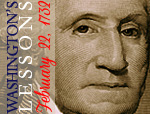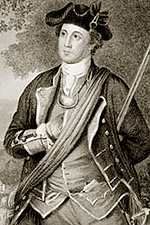
George Washington filled many roles in his lifetime: a surveyor, frontier explorer, businessman, land speculator, soldier, farmer and statesman. A couple of examples from Washington’s childhood help to explain his successes later in life.
By age sixteen, Washington had copied out by hand, 110 Rules of Civility & Decent Behavior in Company and Conversation. They are based on a set of rules composed by French Jesuits in 1595. The first rule sets the tone of the others that follow: “Every Action done in Company, ought to be with Some Sign of Respect, to those that are Present.” There isn’t a leader that wouldn’t benefit from a daily reminder of this approach. Time and time again, these rules from his childhood played out in the conduct of his public life and defined his reputation. These rules and his concern for them integrated him as a leader and bonded him with those he led.

It is the mindset of a leader to work on themselves harder than they work on others. A leader’s first responsibility is governing themselves. Historian Gordon Wood has written, “Washington became a great man and was acclaimed as a classical hero because of the way he conducted himself during times of temptation. It was his moral character that set him off from other men.”
Leadership is embodied in the way you look at the world and respond to it. It’s never too early to choose to lead.
Read more; http://ht.ly/Ja7jX

No comments:
Post a Comment